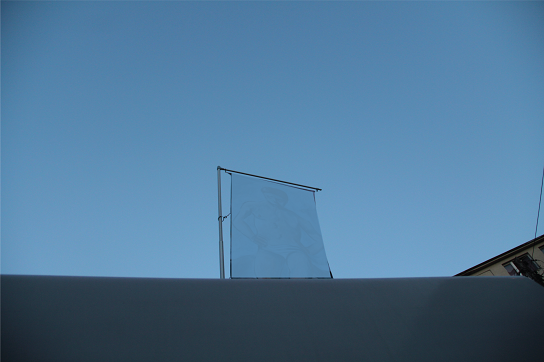
Discussions of feminist art often assume a relatively narrow, Western horizon. This course will provide students with an interdisciplinary overview of feminism and art in a global context with an emphasis on feminist curating. Using arguments deriving from feminist theory, art history, and aesthetic theory, we will undertake a critical inquiry into ways in which gender, geography, and power inform art production, and will explore alternatives to dominant cultural narratives and aesthetics. Topics will include translation, labor, affect, embodiment, post-coloniality, and digitality. The case studies will be drawn from recent exhibitions, critical theory, and artists’ practices.
The course will dedicate itself to a number of questions pertaining to the notion of feminist curatorial practices exceeding the history of feminist art making. The proposed themes encompasses the positions of how one might engage with feminist theory and practice today when navigating an exhibition, museum, biennial, panel, performance and beyond. Addressing the already existing methodological probings into curatorial activism in the realm of gender, the course proposes a wider intersectional activation of several fields: curatorial studies, museum studies, art history and practice. The already accepted ideas of the ethics of collaboration in art institutions will be further pushed into the questions of feminizatition (de-hierchization, trans-linearity and intersubjectivity) of institutions as a radical political shift beyond realm of gender. Its scope is definitively planetary as feminism is nowadays.
Using arguments deriving from feminist studies, the course will argue by building proposals for curating as a form of practice that embodies skeptical inquiry into situated knowledge in the presence of history, geography, ability, class and power. As power is an inherited trait of objectification and inequality, critical curating responds to its contingencies. Feminism in the context of curating is purposely political, historical and threatening to the patriarchal order. However, the curatorial activation of implementing feminist value systems that highlights issues of gender that points to other political exigencies has not been systematically researched within the disciplines of curatorial studies, museum studies, or art history. It has been observed that feminist confrontation of the curatorial is simply incomplete, and methodologies are at the nexus of art working and exhibition making. Uniquely focusing on curating as a feminist rather than the curating of feminist art, the course explores the exhibition as intersectional, with active power to build historical narratives, to disrupt the normative gaze, to support, to revise, to make visible and to share a multitude of beings and becomings. The subthemes include feminist ethics regarding the care, community, ecology and the economies of many in relation to exhibiting art practice.Biography
Jovana Stokić is a Belgrade-born, New York-based art historian and curator. She holds a PhD from the Institute of Fine Arts, New York University. Her dissertation, The Body Beautiful: Feminine Self-Representations 1970–2007, analyzes works of several women artists - Marina Abramović, Martha Rosler, Joan Jonas - since the 1970s, particularly focusing on the notions of self-representation and beauty. Stokic has curated several thematic exhibitions and performance events in the United States, Italy, Spain, and Serbia. Her essay, “The Art of Marina Abramović: Leaving the Balkans, Entering the Other Side” appeared in the catalogue for The Artist Is Present (2010) at the Museum of Modern Art, New York. Stokić was a fellow at the New Museum of Contemporary Art, New York; a researcher at the Whitney Museum of American Art, New York; the curator of the Kimmel Center Galleries, New York University; and the performance curator at Location One, New York. She has taught art history at New York University, Fashion Institute of Technology, and is also on the faculty of the MFA Art Practice.